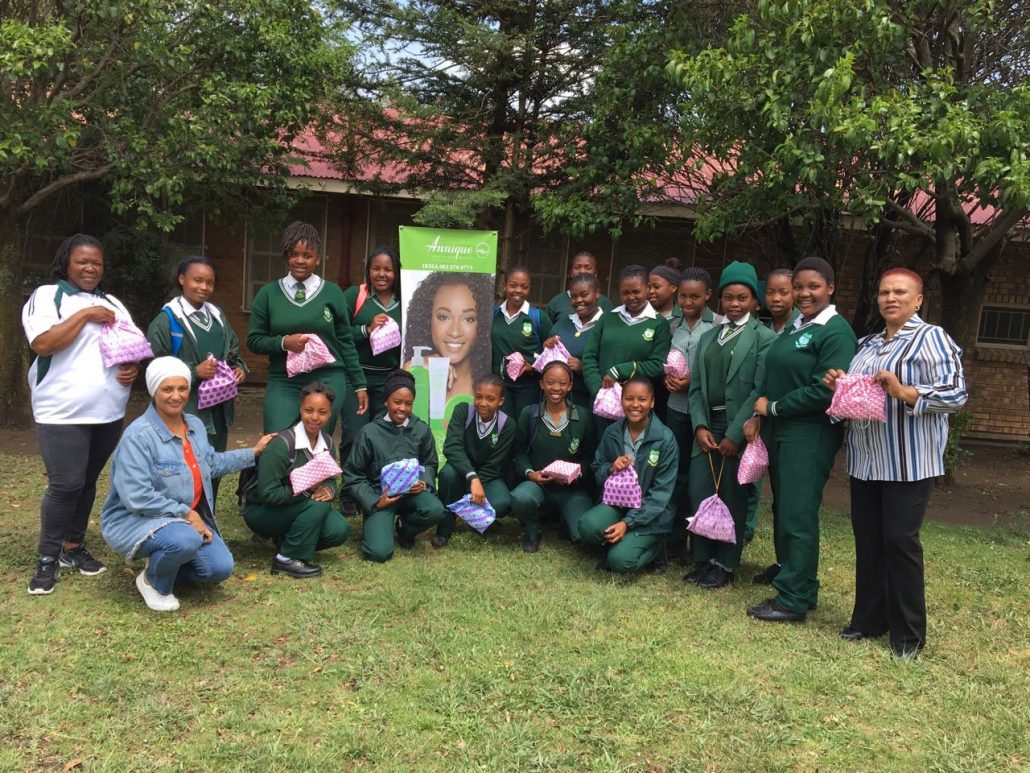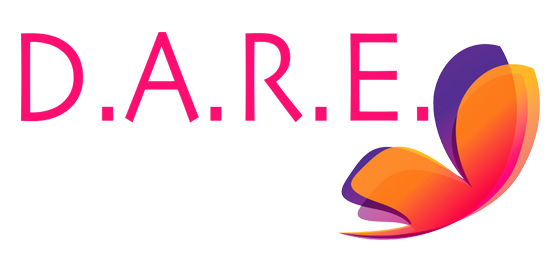
Fiercely strong and firmly dedicated, Mooniba Bhyat is an incredible woman who proudly stands up for all less fortunate girls in South Africa.
Founder of D.A.R.E. to Be Empowered, Mooniba Bhyat is the innovative brainchild and businesswoman behind an organisation which aims to break down barriers in the stigmatic world of menstrual health.
UNESCO stats show that 4 million out of the 7 million school girls in South Africa go through their monthly cycle without being able to afford basic sanitary wear. Mooniba came across this startling piece of information after researching why young girls around the country are absent from school so often or drop out completely.
Her investigation four years ago prompted her to establish D.A.R.E. to Be Empowered, an organisation that focuses on giving girls their dignity back. Mooniba, who is a regional sales leader and mentor for Honey, partnered with the awe-inspiring Dr Fatima Bhabha to bring this imperative cause into existence.
Ms Bhyat researched and developed the most effective solutions for juvenile girls and teens, and came to the conclusion that sustainable and reusable menstrual health products were the way forward. Even the most basic of disposable sanitary pads can cost up to R30 or more a month. That works out to over R360 per year for each girl that doesn’t have any money at her disposal. Over four years, that equates to R1440. The washable sanitary pads endorsed by Mooniba only costs R200 for a pack of six, with each one lasting four years. These SABS-approved pads are made from natural fibre and comply with environmental laws and ‘green’ initiatives, making it far superior to the throwaway type which takes over 800 years to decompose.

Thanks to the menstrual health products which fall under the D.A.R.E. to Be Empowered umbrella, Mooniba also develops young, ambitious and resilient entrepreneurs. The organisation offers three productive opportunities:
A skills-training centre that teaches women how to sew washable sanitary pads.
Women are given an opportunity to earn an income from selling different menstrual health products, including: washable pads, menstrual cups and more affordable disposable pads.
Budding female entrepreneurs are mentored and enrolled in a training and development program.
In the last three years, Mooniba has travelled across the country from Alexandra, Kagiso and Soweto in Johannesburg to deprived areas in Cape Town and Durban, seeking to educate and empower young girls at schools. She gives informational talks to the female youth on menstrual health and how to take care of themselves. Through this amazing initiative, girls are given the opportunity to complete their academic careers with dignity, cleanliness and comfort.
D.A.R.E. to Be Empowered was instrumental in handing over R1 million worth of washable sanitary pads (6500 packs) within the last year. Mooniba’s hard work and commitment to the cause has rewarded her with excellent feedback from girls she’s helped. She recently revisited a school where the young women expressed how beneficial the reusable sanitary towels have been, enabling them to avoid missing school days and yield better academic results.
One of the proudest moments for Mooniba was having a young boy, Ismail Khan, get involved in the campaign. The 15-year-old volunteers at an orphanage in Hillbrow and noticed the need for feminine hygiene products. With help from his mother Dr Mehroon Khan, they successfully raised funds and supplied 20 sanitary packs to girls in the orphanage.
Marketing and social media haven’t been forthcoming about using washable pads or menstrual cups, with people having a very narrow viewpoint on the matter. Dr Bhabha, who recently joined forces with Ms Bhyat, mentions that we need to change mindsets and create awareness around these more sustainable products. D.A.R.E. to Be Empowered plans to launch their social media platforms in the new year with that intention in mind. Dr Bhabha relates: “The more people that talk about it, the more people are going to learn about it and the better the effect we’re going to have.”
Changing perceptions and melting the ice off a usually frosty topic, Mooniba Bhyat and Dr Fatima Bhabha are making strides in female empowerment and menstrual health. They brazenly advocate the privilege of girlhood rather than its limitations.
